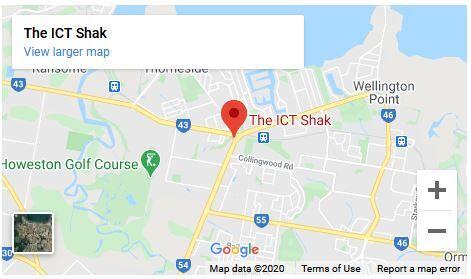Email marketing is a a very powerful marketing medium, but are you DOING IT RIGHT?
Email marketing works, particularly if you have an existing relationship with the members of your mailing list. They may be an existing client, a network connection, someone that you met socially that has passed on their business card, or even someone that sent a simple enquiry through your contact form on your website.
But the key to email marketing is that you need to have that existing relationship. Not just to ensure your email isn't deleted without being opened or doesn't go into their spam box, but also to make sure you are conforming to Australian Spamming laws.
I often get frustrated in regards to aspects of privacy on the internet. I don't have anything to hide but find myself with a mail box bulging from unsolicited spam from people that I do not know and have never met, and I wonder how these people get my email address. I presume that I have signed up to something or given it to someone who has passed it on.
I can't believe what just happened, and it confirms my frustration with privacy on the internet. Here's what happened.
I was in the process of writing an article in regards to Email Marketing.
- How and why to do it,
- the Australian anti-spamming laws
- how to leverage this within your own website.
I googled a couple of related terms. Looked at two pages from two separate domains and In the flick of an eye I receive an email, not in my Google account, but my business, self hosted email, with the subject line
"Email Marketing for your Business"
From a person called Catherine, an "Email Campaign Specialist". No business name, no web address, but a personal greeting using my first name.
Hmmm. So how did they know that I am interested in this topic and how do they know my name and email address?
Google offers re-targeting as an advertising method, and this is a very powerful method of advertising, but I believe Google re-targeting is browser based, serving ads related to your browser history. Further searching resulted in finding a discussion regarding an email re-targeting platform. With the following process: you send your mailing list an email that has embedded cookies, once the email is opened one the cookies drop into the recipients browser, and then your ads are displayed in their browsers when they browse the internet. This is similar to the Google e-targeting concept, but the cookie is embedded in the email you send out, rather than with Google re-targeting code which is embedded within your website.
But this doesn't explain why I received this email after googling "Email Marketing". I found a conversation regarding this on Quora, and as the learned gentleman stated. "Technically, it might be possible to work with a 3rd party data provider to match cookies with email addresses, but that would seem to get into opt-in CAN SPAM issues" (Adam Berke, 2011) So either Microsoft or Google have allowed for my email address to be passed on, or I have inadvertently installed something which allowed access to my browsing and my own domain based emails.
So what is CAN SPAM?
The CAN-SPAM Act of 2003 established the United States first national standards in managing unsolicited spam. Australia also has spamming laws, passed in 2003.
To conform to the Australian Spamming laws you need to
- Include a subscriber Opt-out
- Have either Consent or Inferred Consent
- Include clearly marked sender identification
These Spamming laws refer to "Commercial Electronic Messages" and do not apply to newsletters or emails that are not selling or promoting a specific product or service.
So is Email marketing Good or Bad?
Well, yes! Email marketing is good, but DO IT RIGHT! You need to follow the rules for it to be effective and not just an annoying by-product of having an internet presence. The goal of your email marketing campaign should be to build that relationship, so you are top of mind when your services are sought.
- Target people that you have an existing relationship with
- Make the email topics relevant to the list
- Do not have a "Hard Sell" attitude
- Have your contact details easily accessible
- Make it easy for people to unsubscribe.




